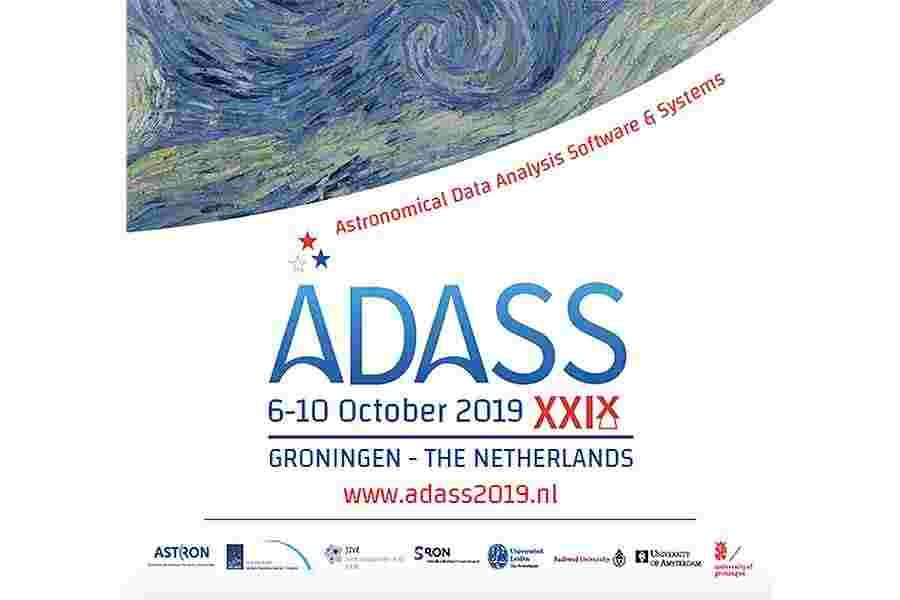
Oct 09, 2019 to Oct 09, 2019
|
Conferences & Events

The 29th annual ADASS conference is being held at MartiniPlaza Conference Center, Groningen, the Netherlands, from October 6th to 10th, 2019. The conference provides a forum for scientists and programmers concerned with algorithms, software and software systems employed in the acquisition, reduction, analysis, and dissemination of astronomical data. An important element of the program is to foster communication between developers and users with a range of expertise in the production and use of software and systems. The program consists of invited talks, contributed oral and display papers, tutorials, user group meetings and special interest group meetings (called BOFs). H2020-ESCAPE cluster members ASTRON , JIVE and University of Groningen are amongst the organizers of this conference. In addition, many ESCAPE consortium members are amongst the participants of this conference.
The key themes for the Groningen ADASS conference were:
In general ADASS, provides a forum where we have brought many of the topics being developed in ESCAPE into an international context, as such the ESCAPE message is being widely transmitted in the astronomy community.
The conference included strong participation by various partners in ESCAPE, in particular from WP4 and WP5. A highlight of this participation was the so called “Birds of a Feather” session on "Science platforms: towards data science” lead by Giuliano Taffoni (INAF), where three contributions related to ESCAPE were presented. A Science Platform is a web based environment providing advanced functionality to analyze and process large and complex datasets close to the data. Science platforms allow users to bring their own customized processing to the data and facilitate sharing of results and workflows with other researchers or projects. Building such a platform poses substantial technological challenges in the identification and staging of existing data collections for analysis; in the identification and application of software tools and packages for data processing and bringing custom workflows to the platform; in taking advantage of the underlying HPC and HTC computing infrastructure to execute those workflows; and finally in the interoperability of different platforms, allowing tools to be shared between them transparently. Are we ready to develop and use such astronomical science platforms? Which are the projects or experiments that my benefit from them? What platforms are already available for astronomers?
Many presentations and posters have been presented by ESCAPE participants (most presentations and posters are available on-line (https://www.adass2019.nl).
Two directly on ESCAPE are:
Follow the discussions on Twitter: #ADASS2019, #ivoa19nl and on @ESCAPE_EU !